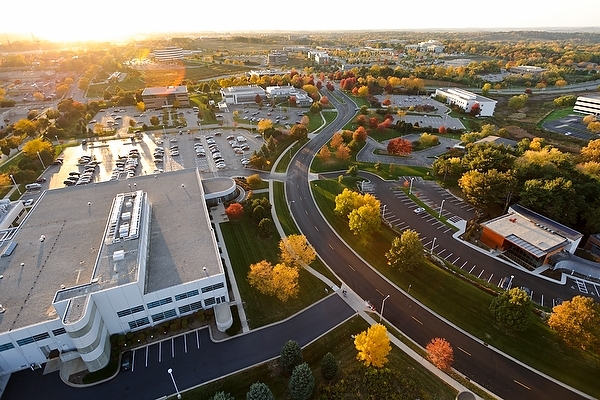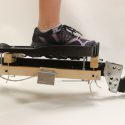University Research Park: A business incubator that is “changing the world”
University Research Park and the MG&E Innovation Center on its campus were cited yesterday, November 15, by Forbes Magazine as among the top breeding grounds for compelling high-tech startups.
The magazine named the park as one of the world’s “10 especially crackling innovation hubs” based on trends in funding for private companies. The MG&E Innovation Center acts as an incubator for businesses at the earliest stage of development, says Greg Hyer, interim University Research Park director.
The rankings were based on data from CB Insights, a Manhattan firm that tracks venture capital, private equity and government-backed deals.
The national recognition was “a shining example of Madison as a globally competitive city,” says Zach Brandon, president of the Greater Madison Chamber of Commerce.
University Research Park was founded by the University of Wisconsin–Madison in 1984 and is home to about 125 companies employing almost 4,000 people.
The Park is home to Ultratec, a giant in deaf communication, and Cellular Dynamics, Inc., a leader in stem cell research.
Exact Sciences, a newer tenant, is attracting national attention with a promising genetic test to screen for colon cancer, says Hyer. “Many of the senior management at Exact Sciences were associated with Third Wave Technologies, a UW–Madison spinoff. When Third Wave was sold, these managers found another promising technology that they brought to Madison and to the park.”
Originally designed to nurture high-tech businesses, the park is also key to retaining talent in Madison, Hyer says. “We have a history with those folks; we can continue to help them.”
High-tech startups need a great technology and capital, but they also need a core of experienced managerial talent, says Hyer. “Madison, because of the university, has always had great technology. Now, it’s beginning to get the established management talent and that begins to build on itself.”
Flexibility is another key to getting start-ups on their feet, Hyer says. “Places like MG&E Innovation Center and the park offer the kind of adaptability that the growing company needs. We offer sophisticated space, with the infrastructure they need to do their work and flexible contracts so they can grow or reduce in size, as they need. It’s not a rigid system; the park is as entrepreneurial as they are.”




